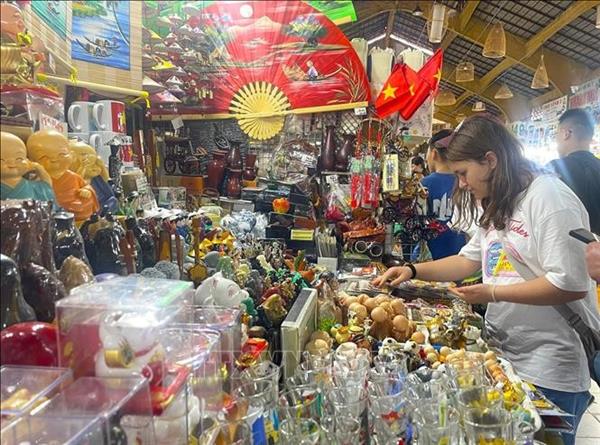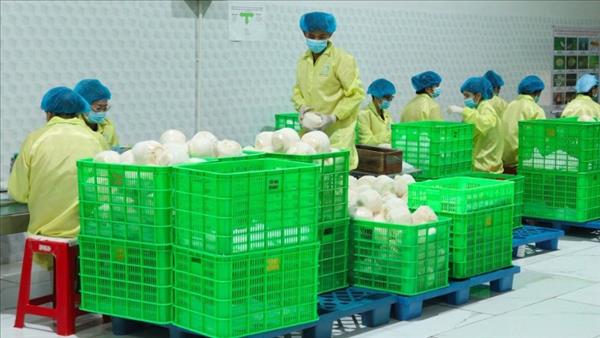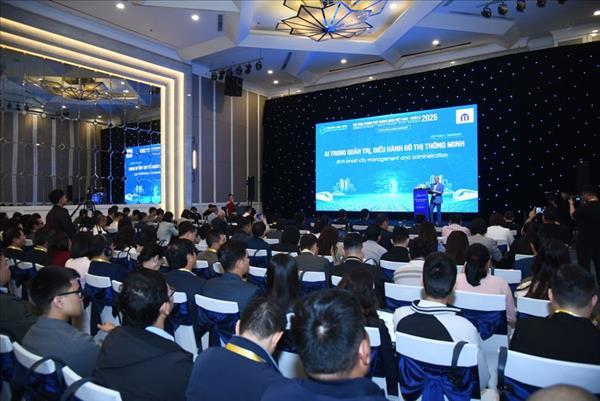Director of the Institute for Agricultural Environment Mai Van Trinh said 25 invasive alien species have been reported in Vietnam, including four microorganism species, five invertebrate animal species, six fish species, two amphibian and reptile species, one bird species and seven plant species.
Meanwhile, 15 alien species with risks of invasion have also appeared in the country such as Procambarus clarkii and Piaractus brachypomus.
He noted invasive alien species with high adaptability often occupy the habitat or harm local creatures, leading to an ecological imbalance. The invasion of alien species may influence the growth of other species and even cause creatures to go extinct.
Invasive alien species can enter a new environment by natural channels such as following wind, water current or migratory animals, but mostly by human activities. With the development of transport and trade activities, humans have unintentionally or intentionally carried invasive alien species, he said.
Trinh added that many species have been brought to the country for economic, scientific or entertainment purposes. However, they have caused serious impacts due to lax control.
To control invasive alien species and those with risks of invasion, state agencies have issued regulations stipulating punishments for releasing and farming invasive alien species, including a Government decree last November.
Trinh said Vietnam should take appropriate measures to manage and prevent the species based on the characteristics of each alien species and local natural and socio-economic conditions.
He suggested agencies refer to the world’s common principles of managing invasive alien species which include six steps: specifying the appearance area and characteristics of the species and their possible impacts on the environment; devising suitable management and environmental recovery measures; making programmes and plans to carry out the management measures; supervising management activities; supervising the measures’ outcomes; and reviewing the implemented plans.
Authorised bodies need to devise measures to control the entrance of those species if they are imported to produce food, as pets or to increase biodiversity. The agencies must foresee the creatures’ possible impacts on Vietnam’s environment before licensing the import.
Trinh also underscored the necessity to step up communications to raise public awareness of the risks of invasive alien species.
Meanwhile, 15 alien species with risks of invasion have also appeared in the country such as Procambarus clarkii and Piaractus brachypomus.
He noted invasive alien species with high adaptability often occupy the habitat or harm local creatures, leading to an ecological imbalance. The invasion of alien species may influence the growth of other species and even cause creatures to go extinct.
Invasive alien species can enter a new environment by natural channels such as following wind, water current or migratory animals, but mostly by human activities. With the development of transport and trade activities, humans have unintentionally or intentionally carried invasive alien species, he said.
Trinh added that many species have been brought to the country for economic, scientific or entertainment purposes. However, they have caused serious impacts due to lax control.
To control invasive alien species and those with risks of invasion, state agencies have issued regulations stipulating punishments for releasing and farming invasive alien species, including a Government decree last November.
Trinh said Vietnam should take appropriate measures to manage and prevent the species based on the characteristics of each alien species and local natural and socio-economic conditions.
He suggested agencies refer to the world’s common principles of managing invasive alien species which include six steps: specifying the appearance area and characteristics of the species and their possible impacts on the environment; devising suitable management and environmental recovery measures; making programmes and plans to carry out the management measures; supervising management activities; supervising the measures’ outcomes; and reviewing the implemented plans.
Authorised bodies need to devise measures to control the entrance of those species if they are imported to produce food, as pets or to increase biodiversity. The agencies must foresee the creatures’ possible impacts on Vietnam’s environment before licensing the import.
Trinh also underscored the necessity to step up communications to raise public awareness of the risks of invasive alien species.
VNA/VNP

















